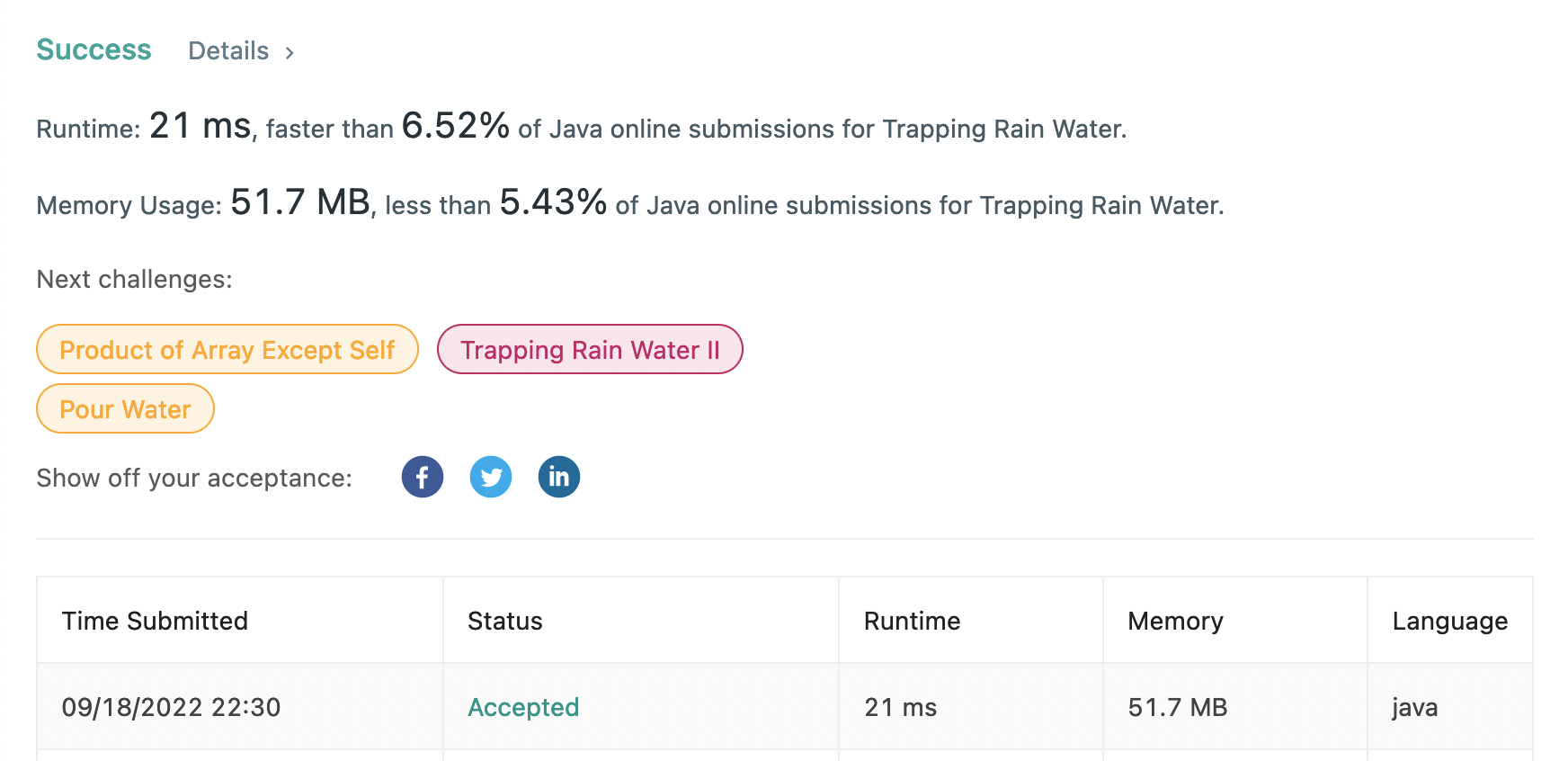[Leetcode] 42. Trapping Rain Water explained

Problem
Approach
Find water levels of each index.
The answer is
How can we find water levels?
We keep (height,index) in a stack.
For i = [0, … n-1] do:
- While
stackis not empty andstack.top.height\(\le\)height[i], update water levels in range(stack.top.index,i)tostack.top.heightand stack.pop(). - If
stackis not empty andstack.top.height\(\gt\)height[i], update water levels in range(stack.top.index,i)toheight[i]. Do not stack.pop().
After above process, sum up water volumes.
Code

class Solution {
public int trap(int[] height) {
int n = height.length;
Stack<Integer[]> walls = new Stack<>();
int[] waterLevels = new int[n];
// find water levels.
for (int i = 0; i < n; ++i) {
if (height[i] > 0) {
while (!walls.isEmpty() && walls.peek()[0] <= height[i]) {
Integer[] wall= walls.pop();
for (int j=i-1; j > wall[1]; --j) waterLevels[j]= wall[0];
}
if (!walls.isEmpty() && walls.peek()[0] > height[i]) {
Integer[] wall= walls.peek();
for (int j=i-1; j > wall[1]; --j) waterLevels[j]= height[i];
}
walls.push(new Integer[]{height[i], i});
}
}
// sum up water volumes.
int ans= 0;
for (int i = 0; i < n; ++i) ans += Math.max(0, waterLevels[i] - height[i]);
return ans;
}
}
Complexity
- Time: \(O(n)\)
- Space: \(O(n)\)

Leave a comment